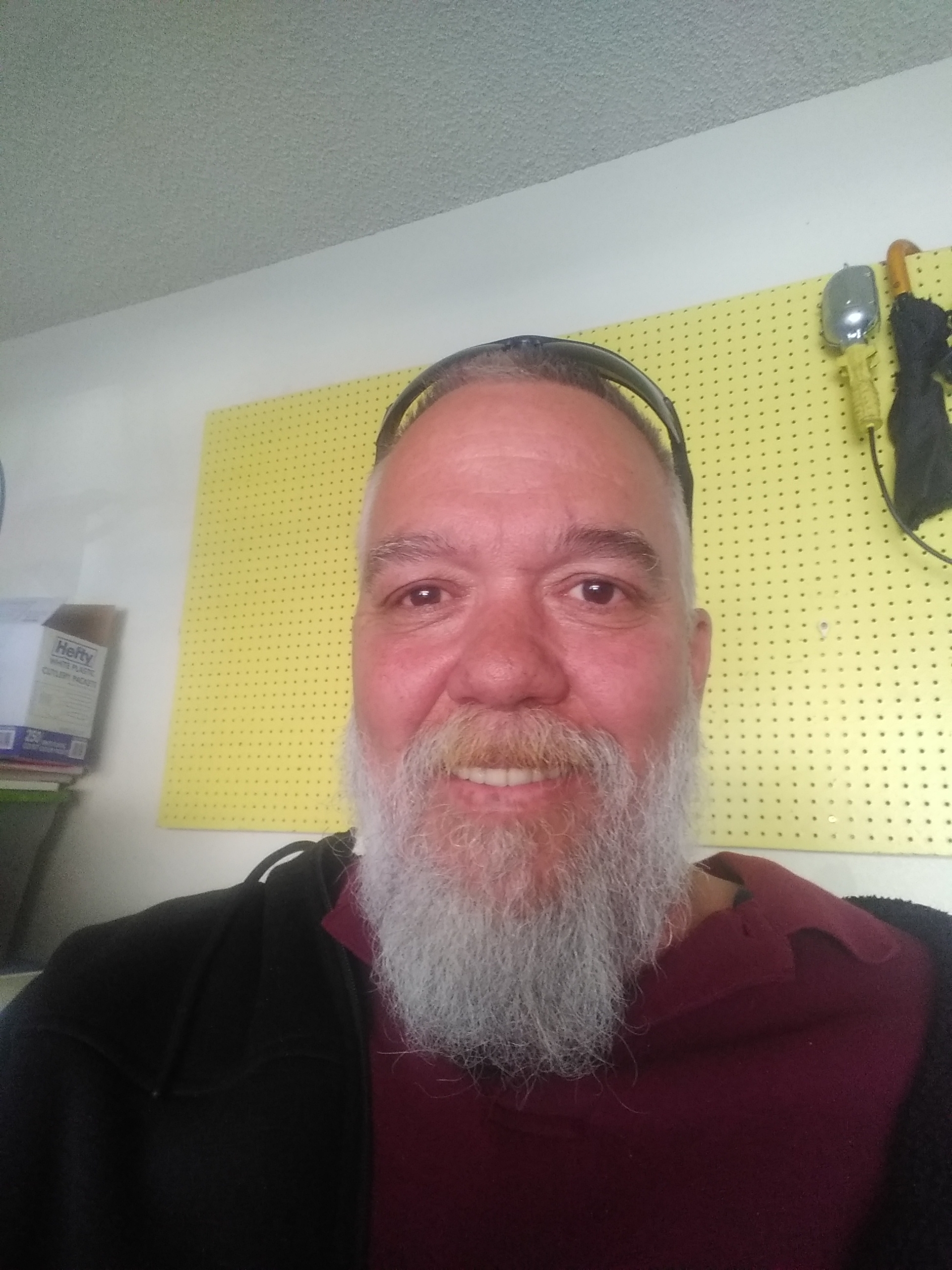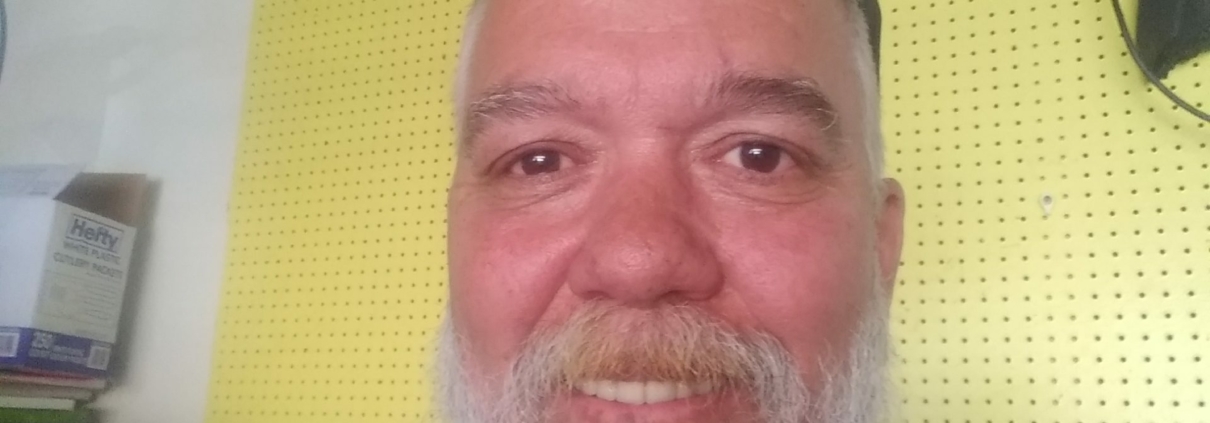Tim Christensen

For most of his adult life, Tim Christensen worked as an electrician. In fact, Tim worked for the company that installed the electricity at Rehabilitation Hospital of Northern Arizona (RHNA) during the hospital’s construction. He recalled working on the main unit during the installation and was familiar with the layout of the facility and the patient rooms.
Little did Tim know he would one day need RHNA’s services himself.
One November day, Tim was in a motorcycle accident. He sustained multiple fractures in the accident, including a T7-8 burst fracture of the spine, a right tibia/fibula fracture, a left ankle fracture, a right wrist fracture, and multiple rib fractures. The fracture to Tim’s spine resulted in paraplegia. He underwent several surgeries, and both of his legs were in external fixators for some time before eventually being removed.
As he healed from the surgeries, Tim’s recovery journey was just beginning. He admitted to RHNA for concentrated therapies to get stronger, regain his independence, and learn to live with paraplegia. For Tim, RHNA was the right place for his rehabilitation. “Being from Flagstaff, having RHNA essentially in my backyard was such a benefit,” Tim stated, recalling his choice to come to RHNA. “I could get the care that I needed, and my family could be close by.”
Tim has a strong faith in God and a love for his family. He has a supportive wife, Loretta, with whom he had four children and two grandchildren. During his recovery, Tim relied on his family as a source of inspiration and motivation.
“Being able to go home to family” was Tim’s reason to work hard. “I could have just stared at the wall and done nothing. But that does nothing for my family. I also wanted to get to a level and be as close to what I was before the accident. Unfortunately, some people just want to give up. I had to remember that God turns what is bad into good, and I wanted to find the good.”
“Do the best with what you’ve got.” Tim often goes back to this motto. His home is multilevel, with all bedrooms and bathrooms on the upper level. As a result, he had to learn new ways to maneuver around his house. Tim reported that some friends from his church rallied around him and bought him a chair lift to help him get up the stairs to the upper level of his home.
Tim shared so much praise for his wife, Loretta, for all the help and support she has given him. “I keep working hard to be as self-sufficient as I can to help lessen the burden of care to my wife,” he noted. “This is a lot of my motivation. For a time, I was relying on my wife too much. RHNA gave me the tools and the base I needed to become self-sufficient.”
In addition, Tim credited the staff at RHNA for influencing his recovery. He especially thanks Jessica (PCT) and Mark and Jaimie (therapy). “The attitude of the people around me kept me sane, and the kindness was just something,” Tim recalled. “There are a lot of hard days, and I was not always pleasant to be around.”
“My recovery was happening during the heart of COVID. I could visit my family by window visit only, so being able to converse with the staff and roll up and down the hallways in my wheelchair was a release. One day, I had a fever, and I could no longer roll up and down the hallways and say ‘hello’ because I needed to be isolated while they ran tests. I didn’t have COVID, thank God. I was mad about not being able to come out of my room and say hello. I blew up and was yelling at the staff because I felt like I was being confined to a cell. I feel bad about that moment. I apologized to the staff about my behavior. The staff was so gentle, understanding, and kind. The staff communicated, ‘We are here to help, no matter how you feel about it.’ They were so forgiving.”
Looking to the future, Tim has a lot of goals.
“Goals are huge. Keep setting goals. We all need goals,” Tim stated. He hopes to help others experiencing a life change due to a new diagnosis of paraplegia. Recently, Tim came back to RHNA to speak with a newly diagnosed patient. “I want to help others by talking about my testimony and what I have gone through. I want to help others realize that you can’t let it be the end of you.”
“You have to keep moving forward. It does not matter where you’re sitting or how you’re sitting.”
Tim’s next goal is to resume driving, and he’s working hard toward that goal. He just got the bars needed to install in his truck to begin learning to drive again. “I have a family member getting married in Las Vegas in about a month, and I’m going to drive my wife and I there. I’m going to do it,” he stated confidently. “It will be nice not to have to rely on my wife to get us places and gain even more independence for myself. It will also help my wife, who will be having surgery on her eye soon.”
“Thank you, RHNA, for giving me the strong base and tools. And remember, “do the best with what you’ve got!”




Leave a Reply
Want to join the discussion?Feel free to contribute!